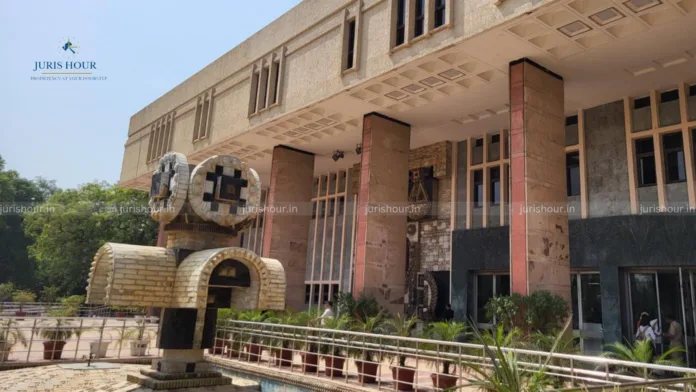The Delhi High Court has held that writ jurisdiction ought not to be usually exercised by High Court in fraudulent Input Tax Credit (ITC) availment cases.
The bench of Justice Prathiba M. Singh and Justice Rajneesh Kumar Gupta has relied on the decision in the case of Mukesh Kumar Garg vs. Union of India & Ors. in which it was held that where cases involving fraudulent availment of ITC are concerned, considering the burden on the exchequer and the nature of impact on the GST regime, writ jurisdiction ought not to be usually exercised in such cases.
The department alleged that Petitioner entity the Petitioner fraudulently availed Input Tax Credit. The ITC which was availed by the Petitioner entity was to the tune of Rs.20,19,791 and it is this amount which was set out in the SCN as the undue benefit which was reaped by the Petitioner.
The Petitioner has raised broadly two issues to challenge the order.
Firstly, it is the case of the Petitioner that in the present case, the SCN and impugned order have been passed by different authorities.
Secondly, that a consolidated SCN has been issued for multiple financial years and the consequent impugned order has been passed.
The court noted that the nature of the allegations against the Petitioner in the present case, as is clear from the SCN as also the impugned order is that the Petitioner, in collusion with other entities has taken substantial benefit of ITC without sale of any goods or services. This strikes at the root of the Input Tax Credit facility which is recognised in the GST regime. An appeal before the appellate authority is a full-fledged remedy provided under Section 107 of the Central Goods and Service Tax Act, 2017.
The court while disposing the petition held that facility under Section 16 of the CGST Act has been misused by various individuals, firms, entities and companies to avail of ITC even when the output tax is not deposited or when the entities or individuals who had to deposit the output tax are themselves found to be not existent. Such misuse, if permitted to continue, would create an enormous dent in the GST regime itself.
Case Details
Case Title: M/S Rohtas Trading Co. Versus Additional Commissioner, CGST, Delhi North
Case No.: W.P.(C) 8039/2025 & CM APPL. 35243/2025
Date: 30th May, 2025
Counsel For Petitioner: Pranay Jain
Counsel For Respondent: Anushree Narain
Read More: RBI’s 50 bps Rate Cut: Fixed Deposit Investors Urged to Act Swiftly Amid Declining Interest Rates

